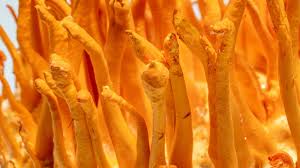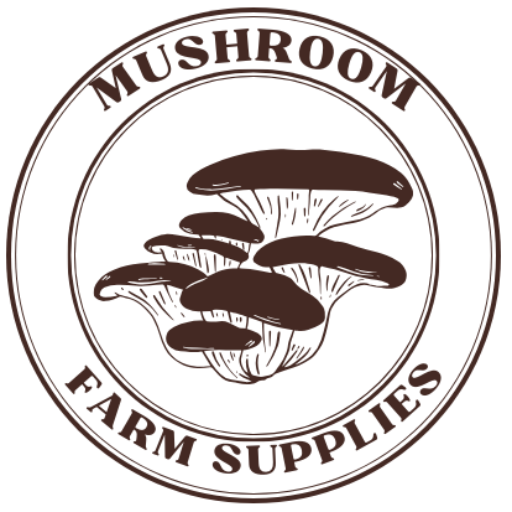Cordyceps
Cordyceps militaris is a species of fungus. It belongs to the family Cordycipitaceae. In 1753, Carl Linnaeus was the first to describe the species. He initially called it Clavaria militaris, and later renamed it to Cordyceps militaris.
Buy A Cordyceps Mushroom Grow Kit Today
Cordyceps Polysaccharides
Polysaccharides have many biological properties and can be used in medicine to treat various ailments. They are important for diabetics and help in reducing certain cancers. In addition, they promote immunity and cardiovascular health. They are also used in medicine to heal wounds.
Cordyceps militaris is a widely used medicinal mushroom in China. It has been identified as an effective agent against hypoxia. The polysaccharides of this species were extracted and purified. They were then tested in vivo and in vitro.
Biological properties of Cordyceps militaris polysaccharides were investigated in different mice models. The anti-hypoxic and hypoglycemic effects of the polysaccharide were tested in normobarie hypoxia and acute cerebral ischemic/hypoxic tests. Both of these studies demonstrated the effectiveness of the polysaccharide.
Further studies are needed to better understand the function-structure relationship of the novel polysaccharide. This study showed that the polysaccharide stimulated phagocytosis, respiratory burst activity, nitric oxide production, and glucose metabolism. It was also found that CMsB groups had higher oxidative phosphorylation-related Gene ontology terms.
Polysaccharides from Cordyceps militaris had a high antioxidant content. This polysaccharide was able to inhibit the formation of malondialdehyde. These polysaccharides were also found to have a higher b-(1-6)-glucan content.
The polysaccharides of Cordyceps militaris sporocarp were also investigated. They were found to be composed of rhamnose, glucose, and galactose.
Check Out Our Cordyceps Storage Slant
Immunomodulatory functions of
Cordyceps
Cordyceps Militaris is a fungus of the Clavicipitaceae family. It has long been used in folk medicine. Its constituent, cordycepin, has been known for its immunomodulatory effects. However, the mechanisms of its anti-tumor effect have not been fully elucidated.
The present study aimed to assess the immunomodulatory effects of cordycepin-enriched C. militaris on the immunity of FM3A tumor-bearing mice. In addition, the effect of cordycepin was examined on tumor-infiltrating lymphocytes.
Compared to control mice, the frequency of CD8+ T cells was higher and the number of IFN-g-expressing CD8+ T cells was increased in the mice fed with C. militaris. These results indicate that the Cordycepin-enriched C. militaris could be useful as an adjuvant in cancer immunotherapy.
This study also found that the amount of IL-2 and TGF-b secretion was decreased in the cordycepin-treated group. In addition, the proliferative response of ConA-stimulated lymphocytes was lower. Moreover, the number of Treg cells was significantly reduced.
Another study evaluated the immunomodulatory effects of cordycepin in diabetic mice. This study also showed that the amount of IL-1b, iNOS, and M1 chemokine receptors was reduced. Furthermore, the cordycepin-dependent decrease in IL-2 and TGF-b secretion led to an increase in IL-4 secretion.
Cordycepin also inhibited reverse transcriptase. Additionally, the study emphasized the protection of BBB integrity.
Try Our Cordyceps Agar Plates!
It has anti-cancer properties
The medicinal properties of mushrooms have been studied for centuries. In the Far East, for example, medicinal mushrooms are used to treat various diseases, including cancer. Eastern Europe also has a long history of using these fungi in folk medicine, including four types of mushrooms used for gastrointestinal problems, various cancers, and night sweats. In Africa and Central America, mushroom use has also been documented.
Many mushroom supplement companies claim that their products have anti-cancer properties, but it is important to note that most of the studies were conducted in animal models and on animal cells, not human volunteers. Furthermore, the size of the study populations and the quality of the research are variable. Until more human studies are conducted, relying on the findings of animal models is not recommended.
 The bioactive compounds present in A. subrufescens have been shown to inhibit the growth of several cancer cells. Studies conducted on the extract of this mushroom have also revealed that it is a potent anti-tumor agent. Its polysaccharide extract has also been shown to inhibit tumor metastasis and oncogenesis.
The bioactive compounds present in A. subrufescens have been shown to inhibit the growth of several cancer cells. Studies conducted on the extract of this mushroom have also revealed that it is a potent anti-tumor agent. Its polysaccharide extract has also been shown to inhibit tumor metastasis and oncogenesis.
A 2007 review of the scientific literature found that the mushroom’s beta glucans may contribute to its immunostimulatory effects. However, the authors noted that further study is needed to determine whether the mushroom’s anti-cancer properties are truly beneficial for humans. There is also a lack of clinical trials that have proven its anti-cancer effects.
One of the most common mushrooms used as a dietary supplement is A. blazei, a type of mushroom commonly consumed in Asian countries. Its anti-inflammatory and anti-tumor properties have been shown in animal studies. Its ability to suppress the immune response to anti-cancer drugs and reduce autoimmune disease has also been noted. Additionally, the mushroom is known to increase T cell proliferation.
Research on mushroom has shown that the mushroom contains many biologically active compounds, including polysaccharides, triterpenoids, and specific proteins. In addition, it also contains numerous vitamins and minerals. These compounds make the mushroom a useful health food.
Anti-oxidant
Cordyceps militaris has a broad spectrum of anti-oxidant activity. It is a natural dietary supplement that can be used to provide protective effects against oxidative stress and inflammation.
The anti-oxidant properties of Cordyceps are associated with its polysaccharides. Polysaccharides contain high levels of antioxidant compounds that have been shown to protect cells from the harmful effects of free radicals. These compounds may also act as immune stimulants and have been found to inhibit cancer growth.
Cordyceps is used to treat various types of cancer, including skin and liver cancer. It has been reported that Cordyceps can improve antioxidant activity in mice and inhibit the proliferation of human tumors. In addition, Cordyceps has been reported to have anti-inflammatory and apoptosis (cell death) effects.
Cordyceps has a number of bioactive compounds, including cyclic peptides, nucleosides, phenolics, and cordycepin. All of these compounds have been reported to have anti-cancer, anti-inflammatory, and immune-stimulating activities. A number of studies have been conducted on Cordyceps to evaluate its effects.
One of the most interesting findings is that Cordyceps has been found to protect the liver. This may be due to its ability to direct free-radical scavenging activity. However, a better understanding of how this hepatoprotective effect occurs is needed.
Try Our Cordyceps Grow Kits now!
Anti-tumor
Cordyceps Militaris is an entomopathogenic ascomycete used for medicinal purposes in China since ancient times. It contains bioactive compounds such as cordycepin. These compounds are believed to inhibit cytotoxicity and cancer cell growth. They also exhibit anti-inflammatory properties.
The Cordyceps species may be beneficial for treating uterine cervix cancer. Its polysaccharides demonstrate great potential for use in this treatment.
Cordyceps militaris inhibits the growth of cancer cells. However, its mechanism of action is not fully understood. Consequently, more studies are needed to determine its therapeutic value.
In addition, Cordyceps has the capacity to induce apoptosis. In this study, we examined the effects of Cordyceps militaris on adenosine and cell apoptosis in vitro. We observed that Cordyceps extract stimulated apoptosis in HepG2 and RKO cell lines. This activity was attributed to the stimulation of caspase-3 and cleavage of PARP.
Our results indicate that Cordyceps militaris has a strong cytotoxic effect on RKO cells, promoting apoptosis, as well as cell cycle arrest. It is also suggested that this fungus may have a beneficial anti-tumor effect on liver and colorectal cancers.
In addition to its cytotoxic ability, the Cordyceps extract also showed significant inhibition of tube formation in endothelial cells. Additionally, the Cordyceps extract decreased matrix metallopeptidase (MMP), which is a key molecule involved in metastasis.
Anti-inflammatory
Cordyceps Militaris is a medicinal mushroom from Asia, which has been used for a long time as a folk tonic. Its anti-inflammatory effects have led to studies on its potential to treat many illnesses.
Cordyceps militaris inhibits nitric oxide production in the body and has antioxidant properties. It also affects macrophages and monocytes.
Cordyceps Militaris can also reduce the inflammatory response in airway smooth muscle cells. These cells are responsible for contracting during an asthma attack. In addition, it also has anti-cancer activity.
Cordyceps militaris has been suggested to be effective in treating a variety of diseases, including diabetes, kidney damage, autoimmune disorders, and asthma. But its effects on these conditions have yet to be fully elucidated.
Cordyceps militaris is considered to be effective at preventing tumor metastasis, and it also has immune-enhancing properties. Cordyceps militaris is also effective in improving memory deficits in rats.
The Cordyceps militaris is believed to have anti-inflammatory effects because it regulates the adenosine A3 receptor. It also promotes immune cell proliferation. This could be why Cordyceps is beneficial in treating diabetes.
Cordyceps militaris also has anti-inflammatory effects on immune cells, including splenocytes. This is one reason why it is commonly used in cosmetics and other areas of medicine.
We Have Only The Best Cordyceps Liquid Culture Available
